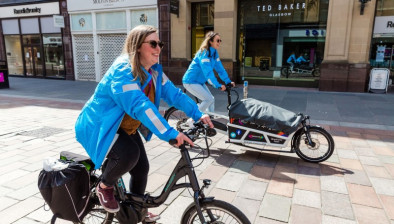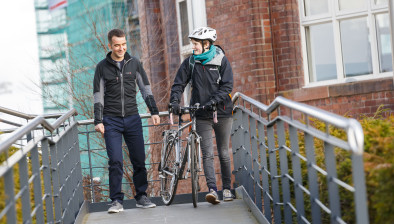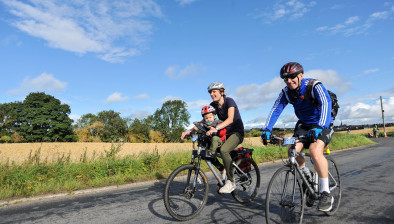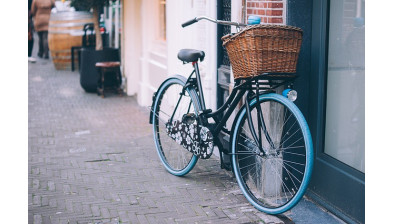Melville helps Midlothian village with Covid recovery
Melville Housing Association is the new centrepiece of a quiet corner for reflection in the Midlothian village of Gorebridge, thanks to funding from Cycling Scotland’s Social Housing Partnership Fund, and the hard work of a dedicated band of community volunteers.
Located at the Gorebridge Beacon, a venue for the local community, the bench, made from durable recycled plastic, was installed just before Christmas and has now been enhanced by an eye-catching pergola. While it will take a little while for climbers and other plants to grow, the tranquil spot is already proving popular with regular visitors.
Volunteer and project mastermind Ann Dunn, said: “With the past couple of years so hard on everyone, what we wanted to create was a secluded spot where folk can relax and watch the world go by. The idea is that this corner of the garden will be part of the world but also separate from it, a sort of half-way house. Lots of people have been badly affected mentally, as well as physically, by the events of the past couple of years. We want to do what we can to help people reconnect but at their own pace.”
Ms Dunn has been an active member of the local community since she moved to Gorebridge a little over 11 years ago. A trustee of Gorebridge Community Development Trust, Ann helped set up Gorebridge Community Gardeners to help people get back in touch with nature and to add some joy and beauty to the village.
Ms Dunn continued: “Outside space sets the scene. This is true everywhere but is something that we really wanted to harness at the Beacon. Landscaping the garden attracts more people in and you only had to look at how popular our picnic benches were during lockdown. For some people it was the only opportunity they had for social interaction. It really was a lifesaver. This bench, kindly donated and installed by Melville, along with the corner we’ve created, is the next step in that journey.”
The group’s latest goal is to make the quiet corner more accessible for those with disabilities. They have no funding for the path that’s needed nor for any of the work they’ve carried out so far, instead raising money through plant sales and the generosity of local partners.








